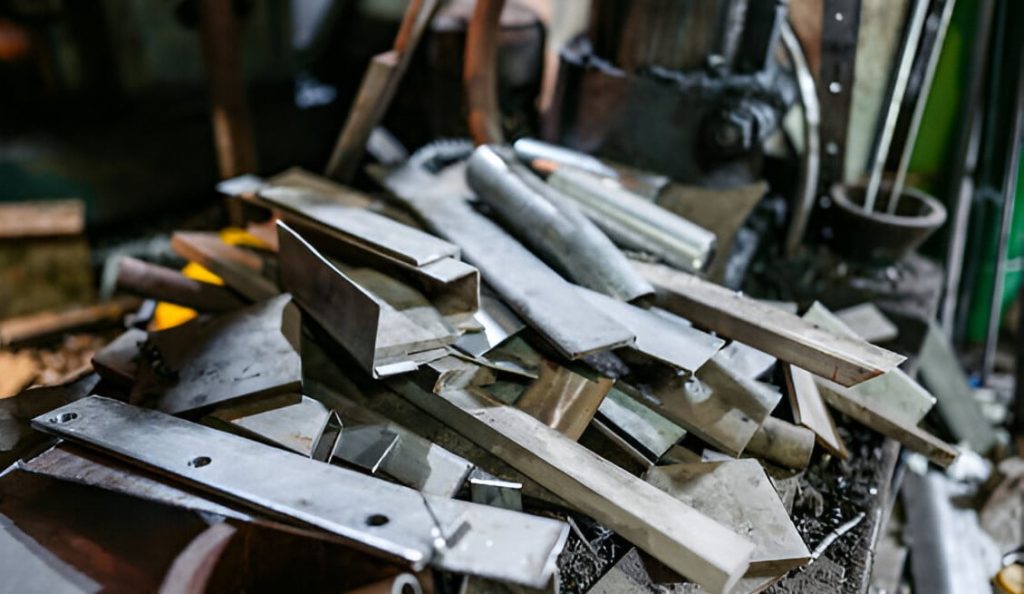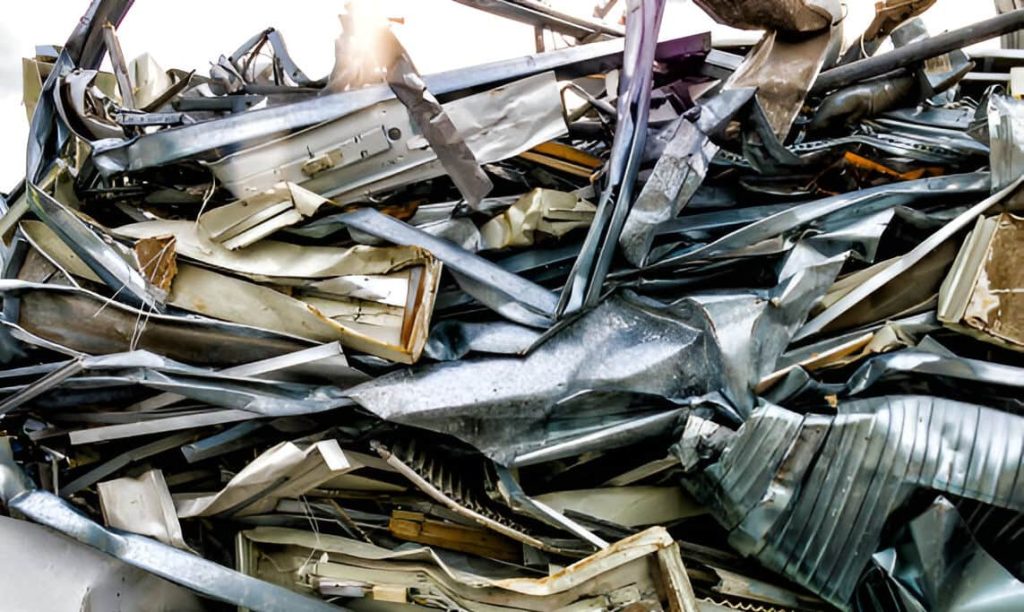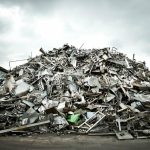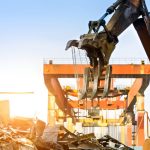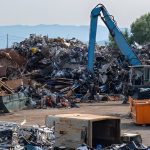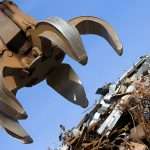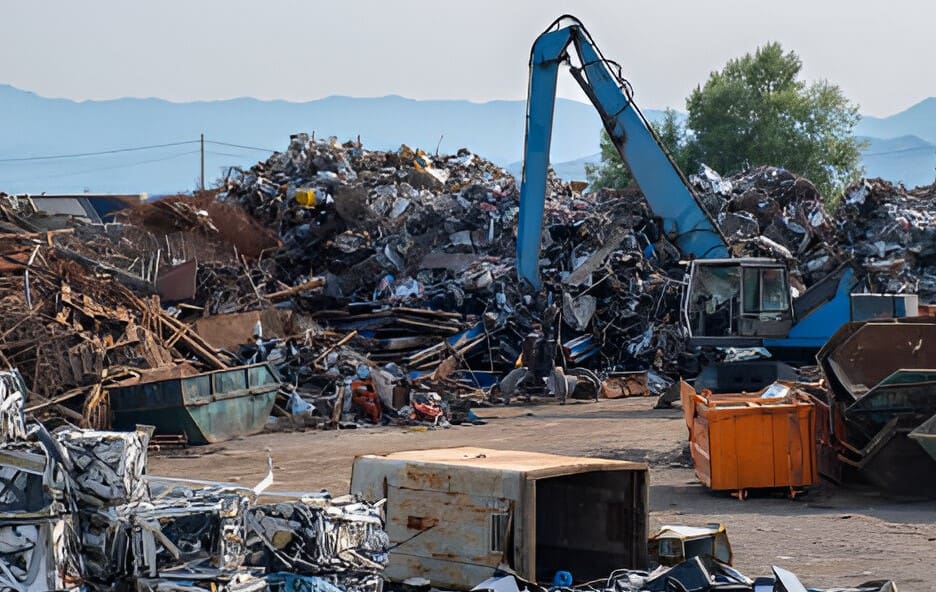
In a city like Dubai, where development and industry are continuously expanding, waste management is no longer limited to disposal. One of the most valuable aspects of sustainable resource use today lies in scrap metal recovery—the process of reclaiming metal waste and converting it into useful, marketable materials. This shift from discarding to repurposing not only protects the environment but also offers tangible economic benefits to businesses and industries.
At the centre of this transition is the growing recognition that waste, when managed wisely, is a resource—not a liability. Companies like Enviro Values are actively supporting this change by helping businesses rethink how they deal with metal waste.
Why Scrap Metal Recovery Matters
Scrap metal recovery involves collecting, sorting, and processing metal materials that are no longer in use. These might include everything from dismantled construction parts and outdated machinery to metal off-cuts from manufacturing plants. While they may appear worthless, these materials often hold substantial residual value.
Dubai’s industrial and urban growth has led to a steady increase in the generation of metal waste. Rather than allowing it to pile up in landfills or rust away unused, industries are now exploring how this scrap can be fed back into the supply chain.
Economic Impact of Scrap Metal Recovery in Dubai
The economic appeal of scrap metal recovery lies in its dual capacity to cut costs and create revenue. Here’s how:
- Reduces dependence on raw materials: Recovered scrap metal is often cheaper than sourcing new materials.
- Minimises waste disposal fees: Metal waste that’s sold instead of discarded helps save on landfill and transport costs.
- Supports local recycling industries: Collection, processing, and resale of scrap metal creates employment and business opportunities.
In Dubai, where infrastructure projects, transport systems, and manufacturing plants are expanding rapidly, there is a constant demand for raw materials. Scrap metal offers a cost-effective solution to meet this demand without exhausting natural resources.
What Types of Metals Are Recovered?
Scrap metal recovery is not limited to a single type of material. At Enviro Values, a broad range of metals is processed regularly. These include:
- Ferrous metals: iron, steel, and other magnetic metals, often recovered from construction beams or machinery.
- Non-ferrous metals: aluminium, copper, brass, and stainless steel, which are more valuable due to their corrosion resistance and conductivity.
- Industrial offcuts and shavings: leftover materials from workshops and factories.
- Discarded equipment: HVAC units, pipes, electrical panels, and more.
Each type of metal has its own recovery value, and advancements in sorting and refining techniques mean higher quality and usability in the recycled product.
How Scrap Metal Recovery Works
The process typically follows several stages:
- Collection: Materials are gathered from construction sites, factories, and dismantled equipment.
- Sorting and Identification: Metals are separated into ferrous and non-ferrous categories using magnets and other tools.
- Processing: Scrap is cut, shredded, or melted to make it suitable for reuse in manufacturing.
- Distribution: The recycled metal is sold or supplied to industries that need raw materials.
This cycle supports a more sustainable economy and reduces the pressure on natural mining operations.
Environmental Benefits Beyond the Economy
While the financial upside of scrap metal recovery is clear, the environmental advantages are equally compelling. In a region like Dubai, where sustainability goals are increasingly integrated into planning and development policies, these benefits are no longer secondary—they are essential.
Key environmental advantages include:
- Energy conservation: Recycling metals requires less energy than extracting and refining virgin materials.
- Lower emissions: Reduced mining and processing translates to fewer greenhouse gases released.
- Landfill reduction: Diverting scrap from landfills helps prevent soil and water contamination.
Recycling also aligns with Dubai’s broader environmental strategies, making it a socially responsible and economically wise choice.
Challenges and Solutions in Scrap Metal Recovery
Despite the advantages, some businesses still hesitate to invest in metal recovery. Common concerns include lack of awareness, logistical challenges, or uncertainty about the financial return. That’s where the role of experienced recovery partners becomes crucial.
Enviro Values offers clear documentation, fair pricing, and end-to-end support for companies interested in entering the recovery cycle. With a structured process and a focus on transparency, businesses can easily understand the benefits and feel confident in participating.
Future Outlook for Scrap Metal Recovery in Dubai
As Dubai continues to grow, so will the amount of metal waste generated. But this isn’t a burden—it’s an opportunity. With better awareness and infrastructure for scrap metal recovery, the region is well-positioned to turn its industrial by-products into valuable resources.
Economic growth and environmental responsibility no longer have to be separate paths. The future lies in integrating both, and metal recovery is a perfect example of this harmony in action.
FAQs
1. Is scrap metal recovery profitable for small businesses in Dubai?
Yes. Even small volumes of high-value metals like copper or stainless steel can offer significant returns when recycled responsibly.
2. How can I identify whether my business generates valuable scrap metal?
Any company that works with construction, fabrication, or mechanical systems is likely producing recyclable metal. A professional evaluation from Enviro Values can help assess its worth.
3. What is the difference between ferrous and non-ferrous metals?
Ferrous metals contain iron and are magnetic (e.g., steel), while non-ferrous metals like aluminium or copper are not magnetic and typically more valuable.
4. Can scrap metal recovery contribute to sustainability goals?
Absolutely. Recycling metal reduces energy use, cuts emissions, and supports the circular economy, which is essential for meeting long-term sustainability targets.


